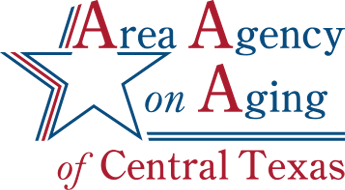Medicare, Medicaid, State Health Insurance Assistance Program (SHIP)
The maze of government benefit programs can be difficult to navigate, but it is the key to older adults receiving the benefits to which they are entitled. The Benefits Counseling program provides one‑on‑one, free counseling and assistance by a trained, certified Benefits Counselor to individuals eligible for Medicare benefits.
Benefits Counselors provide information and answer questions to ensure that individuals are receiving the benefits to which they are entitled. Benefits Counselors screen for eligibility and assist with the application process for benefit programs including the Medicare Savings Program (MSP) and Low-Income Subsidy (LIS or extra help). Unbiased information about Medicare Advantage plans, Medicare supplement or Medigap plans, Medicare Part D prescription drug plans can be provided as well as assistance with enrollment into a plan of the individual’s choice.
A person who is 65 years or older, or a person who has a disability, may receive Medicaid assistance if he or she meets income and resource limits set by the program.
The amount of resources that a person owns is considered when deciding if he or she can receive Medicaid. Resources can include bank accounts, certificates of deposit, property, cash value of most life insurance, stocks and bonds.
Resources do not usually include the value of a person’s home, vehicle, limited burial fund or personal belongings.
To find out if your income and resources are within the limits of this program, you can fill out a self-screening questionnaire at www.YourTexasBenefits.com.
You can also meet with an HHSC staff person at an office near you. To find an office near you, call 2-1-1 and an operator will give you the address to the closest office.
A person who needs 30 or more days of continuous, long-term care may be able to receive Medicaid if income and resource limits set for the program are met. Medicaid may also pay for medical services that were received three months before the person applied for assistance.
A person who receives Medicaid for long-term care must pay a portion of the cost by using all of his or her income, except for a small monthly allowance for personal needs and certain deductions such as health insurance premiums.
Long-term care services can be provided through community programs while the person is living at home or while the person is living in a long-term care facility, such as a nursing facility, institution for mental diseases or facility for the mentally retarded.
The benefit period for long-term Medicaid services is usually one year. Before the end of the benefit period, a renewal application will be sent to that person, or his or her authorized representative.
A person who receives Supplemental Security Income (SSI) automatically receives Medicaid. HHSC sends information about Medicaid services to people receiving Supplemental Security Income.
If a person receiving Supplemental Security Income needs help paying for medical services that were received three months before applying for Supplemental Security Income, he or she must complete a Medicaid application to request this help. Income and resource limits set by this program must be met.
To learn more about how to apply for Supplemental Security Income, visit the U.S. Social Security Administration’s website or call the toll-free number, 1-800-772-1213.





